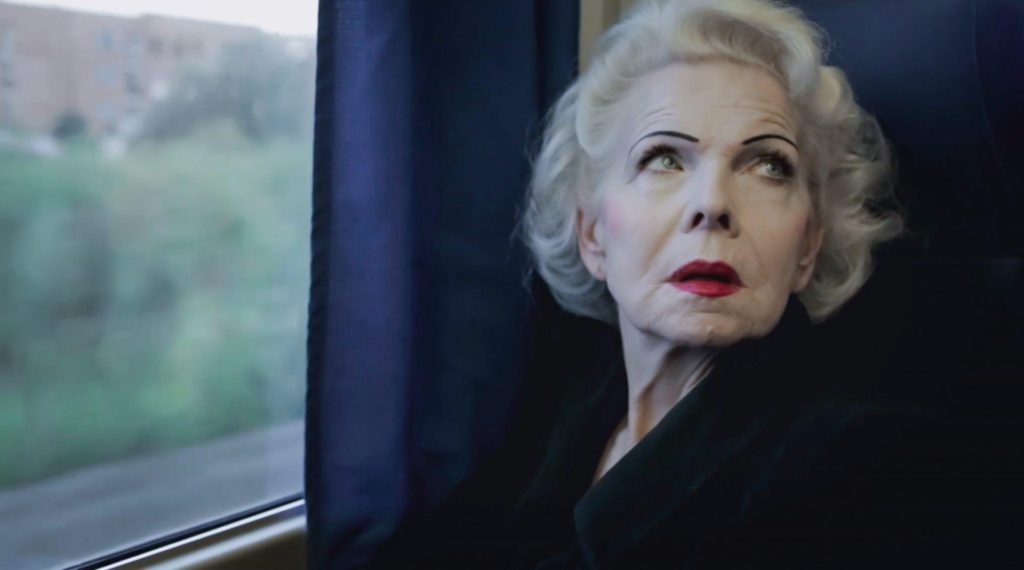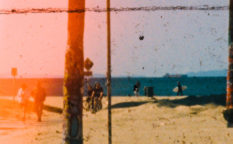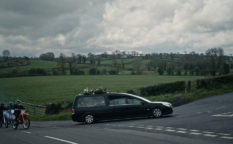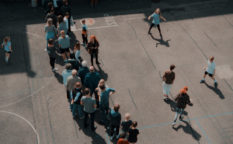Review: Lessons of Love (2019)

Love is something that cannot be simply explained by words, but it is always easily recognized once it happens. But what about the people who’ve spend their lives without ever having loved someone or having been loved? Can they learn a lesson about love, can they recognize it and embrace it in an advanced age, regardless of their previous experiences that had shaped their beliefs? Małgorzata Goliszewska’s and Kasia Mateja’s Lesson of Love is a documentary just about that. It premiered at last year’s edition of IDFA, before hitting the festival cycle earlier this year. It was one of the competition titles at IceDocs, where we had the chance to see it.
In this observational, but occasionally poetic, dream-like documentary, we meet our protagonist Jola in the breaking point of her life, when she is getting ready to leave her abusive husband Bogdan after many decades of domestic terror. Even while she’s leaving their home in a mountain village in Italy for her native Poland, he berates her, throwing abuse. Surrounded by her life-log girlfriends, she discovers new hobbies such as singing and dancing lessons. Also immersed at work around the big house she lives in, can finally starts enjoying her life.
On top of it all, she falls for her dancing partner, a nice, endearing elderly man by the name of Wojtek who leaves her in an awkward position – that kind of emotion is something completely new for her. This is just the beginning of the problem and the fear of her husband’s revenge becomes an excuse for. Jola is in denial of her feelings, claiming she is through with love as an abstract thing she does not believe in.it and that she does not believe in-
There is a reason for it and it is, sort to speak, inside Jola. She is not just a woman who had had enough of it all, she also belongs to a generation raised in such a way to uphold the patriarchal mindset. She is facing her own conservative thinking rooted in strict Catholicism with an accent on the sanctity of marriage crucial to the Polish reading of the religion. In practice that means that Jola was probably raised in a loveless home, got married young and took the “in good and in evil” part of the rites quite literally, like most of the women of the same upbringing. It is a sin to leave the husband, despite of his verbally and physically abusive behaviour and the priest’s consent to the divorce.
Jola’s conservatism can be also read from the way she treats her children, especially daughters, berating them for not taking enough care of how they look like (she puts lots of effort in her looks, never leaving the house without the full makeup, or being meticulously coiffed and dressed), effectively reaffirming the pattern imposed to her by her husband. The children, on the contrary, support her newly found lifestyle, basically reflecting their generation’s stance on the questions of marriage and the individual happiness even when Jola feels insecure about her decisions.
The approach Goliszewska and Mateja opt for is thoroughly thought out and serves its purpose in the compact form of a 75 minutes-long documentary. The blending between the strict observation and dream-like interventions is smooth, highlighted with the use of different musical styles to illustrate the mood, and at the same time, it speaks volumes about the deep trust between the principal subject of the film and the filmmakers. The camerawork by Mateja, Mateusz Czuchinowski and Tymon Tikwinski is spot on and even has the dramaturgical function: the moments Jola shares with her friends and family are largely filmed in a hand-held mode, while those with Wojtek are, for the greater portion of the film, shot from a larger distance and with fixed camera, reflecting Jola’s own restrains and reservations about the nature of her new relationship.
Without the unnecessary didactic tone and the need to make a point in a banal fashion, Goliszewska and Matej paint a dynamic portrait of an interesting woman on her way to find herself, and to identify her needs. This is what makes Lessons of Love a strong and heart-felt documentary.
Original title: Lekcje milości
Year: 2019
Runtime: 75’
Country: Poland
Language: Polish
Directed by: Małgorzata Goliszewska, Kasia Mateja
Written by: Małgorzata Goliszewska, Anna Stylinska
Cinematography by: Kasia Mateja, Mateusz Czuchinowski, Tymon Tikwinski
Editing by: Alan Zejer
Sound by: Anna Rok, Jarosław Sadowski
Sound design by: Marcin Lenarczyk
Colourist: Wouter Suiderhoud
Grading by: Raoul Nadalet
Assistant director: Anna Stylinska
Produced by: Anna Stylinska, Izabela Lopuch, Joanna Syzmanska
Production companies: Widok, Aura Films, MX35, HBO Europe
Supported by: Polish Film Institute, Pomerania Film
Sales: Autlook Filmsales
















